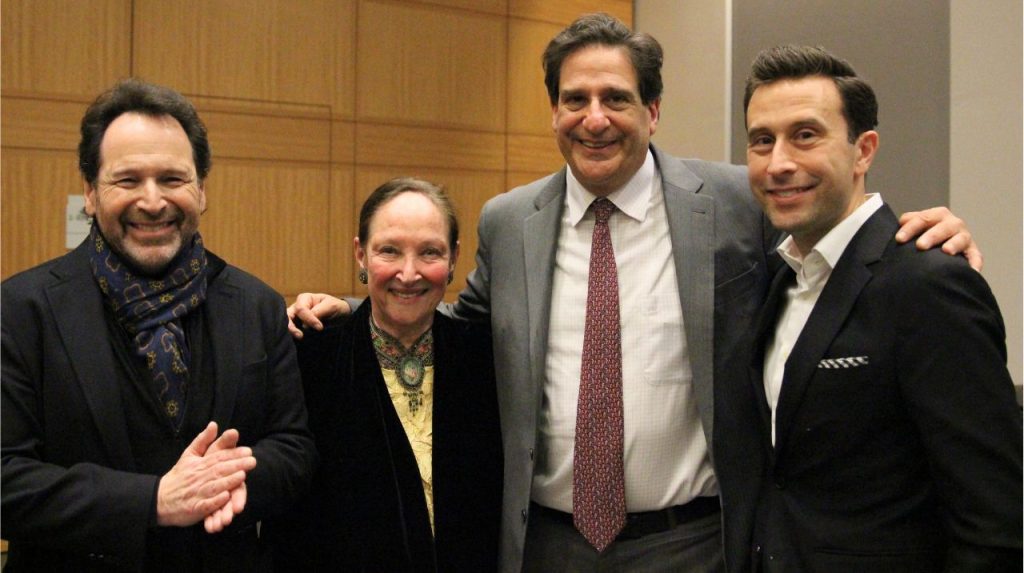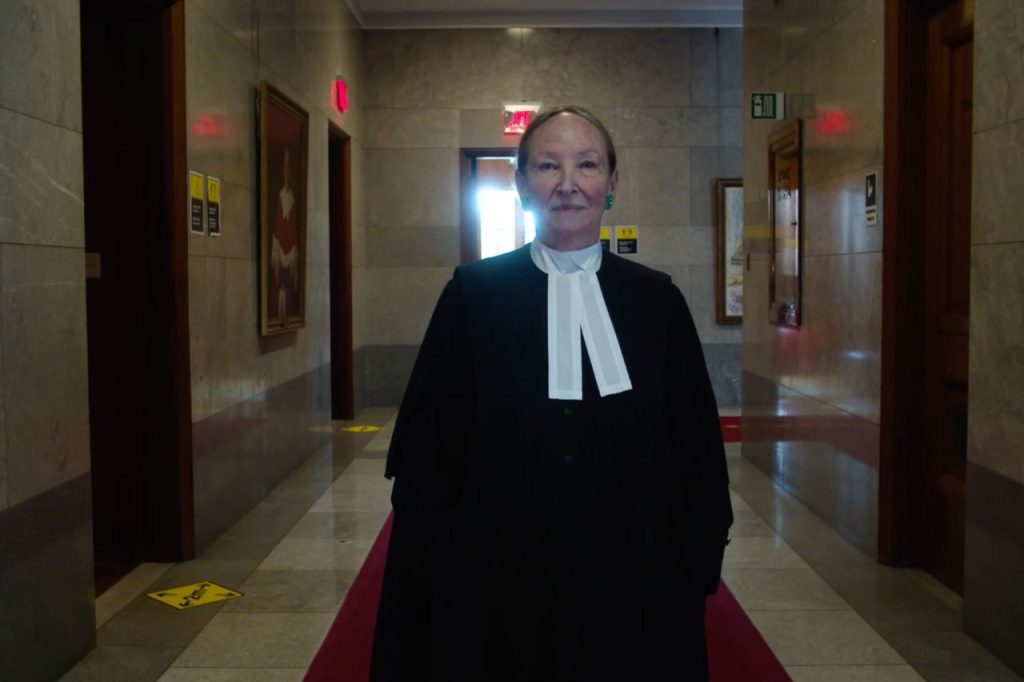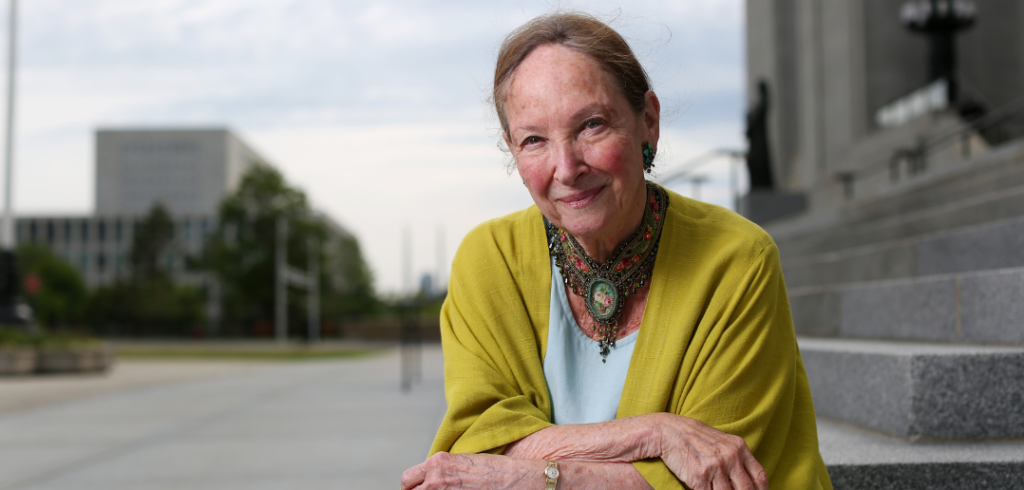Born in a displaced persons camp in Germany after her parents escaped the Holocaust, Rosalie Silberman Abella charted a remarkable and historic path to becoming the first Jewish woman on Canada’s Supreme Court. Often described as “Canada’s RBG,” Justice Abella has dedicated her life to human rights, equality, and constitutional law.
The Fordham Law community had an exclusive opportunity to learn more about Justice Abella’s life, both inside and outside the courtroom, at the New York premiere of “Without Precedent: The Supreme Life of Rosalie Abella,” hosted at the Law School in November. “Without Precedent” is a gripping documentary portrait of Justice Abella in her final days as Canada’s longest-serving judge. It also sheds light into what inspired her and what continues to drive her resolute commitment to make a difference, as well as a chronicle of her family beginnings, her meteoric career, and her enduring marriage to famed historian Irving Abella.
Justice Abella joined Fordham Law Dean Matthew Diller, documentary director Barry Avrich, and documentary producer Mark Selby for a Q&A following the screening, discussing her time as Fordham Law’s William Hughes Mulligan Distinguished Visiting Professor in International Studies in 2022 and what it was like to make the film during the COVID-19 pandemic.

After viewing the documentary for the third time at Fordham Law, Justice Abella said that the film’s message is one of inspiration, especially for law students.
“The expectation when you go into a profession like the law is ‘This is the way you do it, this is what you’re supposed to do, this is what you’re supposed to look like, and this is what you’re supposed to sound like,’” she said. “This movie is a rebuke to all of that, an ad for ‘Do it any way you want to do it.’”
Justice Abella, 77, led a life of “firsts.” She was the first Jewish woman and pregnant person in Canadian history to become a judge when she was appointed to the Ontario Family Court in 1976. She was also the country’s youngest judge at the age of 29, the first refugee to sit on the Canadian Supreme Court in 2004, and the first head of the Royal Commission on equality and employment, where she created the term and concept of “employment equity” and established the basis for Canada’s robust approach to gender equity in the workplace. Her groundbreaking opinions in the fields of employment law, family law, aboriginal law, consumer law, and copyright law helped build a global reputation of the Supreme Court.
“I think that the true test of a great legal legacy is the answer to two questions: ‘Did it make a difference? Did it make life any better?’” said Tom Clark, Canada’s Consul General in New York, in welcoming the audience to the screening. “I think, unquestionably, what Rosie has done in her life has tangibly improved the lives of marginalized people across Canada and has helped our country chart a path towards achieving our full potential as an equitable, inclusive, and multicultural society.”

The program was presented in conjunction with Fordham Law’s Jewish Law Students Association and Consulate General of Canada in New York.

